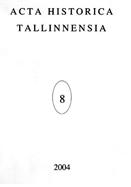
Keywords: Estonia; Estonian History; Nietzsche ; Reinhard Wittram ; Gewährsmann
Der Aufsatz behandelt den Historismus als einen neu zu erschliessenden Problembereich in der politischen und wissenschaftlichen Kultur des baltischen Deutschtums vor und nach 1945. Im Mittelpunkt steht das Historismusverständnis des führenden deutschbaltischen Historikers und Theoretikers der Geschichtswissenschaft Reinhard Wittram (1902–1973), das anhand einer kritischen Interpretation seiner historisch-politischen Publizistik und seiner wichtigsten wissenschaftlichen Vorträge der 1920er/1930er sowie der 1950er/1960er Jahre in Umrissen dargestellt wird. Die frühe dualistisch-dramatische Idee der Geschichte löst sich bei Wittram später in einer reiferen Denkform auf, die nach seinem höchst eigenständigen nichtmarxistischen Begriffsgebrauch vielleicht ‘dialektischer Historismus’ genannt werden kann. Damit wird Wittram als ein bis heute beachtenswerter Geschichtsdenker, dessen Bild in der Historiographie von der nationalsozialistischen Vergangenheit leider stark belastet ist, wieder in den heutigen Historismusdiskurs integriert. Zum Beispiel darunter auch auf das Niveau der Diskussionen der 1990er Jahre zwischen Jörn Rüsen und Otto G. Oexle gebracht, weil diese ehemalige Kritik, die Wittram am Historismuskonzept Friedrich Meineckes übte, ist teilweise aktuell geblieben. Vor allem wird hier aus der problemgeschichtlichen Perspektive die Entwicklung Wittrams ‘Axiome’ diskutiert: seine schon früh differenzierte, wenn nicht sogar durchaus ambivalente Auffassung vom Historismus überhaupt, unter dem er nicht nur einen Grundbegriff der modernen Historie, sondern auch nach dem Vorbilde von Nietzsche und Ernst Troeltsch eine Schlüsselfrage bzw. ein Lebensproblem der ganzen gegenwärtigen Kultur verstand. Besondere Aufmerksamkeit verdient dabei der wittramsche Nietzsche-Kontext, die Rezeption der lebensphilosophischen Historismuskritik Friedrich Nietzsches, deren sehr entscheidende, wiederkehrende Motive seit 1934 bis 1969 aufgrund der vergleichenden Textanalyse in dieser Untersuchung aufgehellt werden. Neben dem ganz berechtigten politisch-demokratischen Kritik in Sachen der sog. Naziperiode Wittrams darf man jedoch nicht vergessen, dass Wittrams fast erbarmungslose Selbstkritik wegen seines einstigen Nationalismus im Rahmen der Volksgeschichte, mit der er die ‘Gefahr’ des historischen Relativismus neutralisieren versuchte, später ein bedeutsames Wegzeichen ist. Es ist ein Merkmal, das zeigt, wie er einen schweren Weg ging, der ihn von der durch die neukonservativen geschichtsideologischen Züge charakterisierbare Volksmetaphysik über eine nachkriegszeitliche Existenzkrise zu einem im Grunde freiheitlichen kulturell-politischen Pluralismus brachte. Das aber heisst, ihn zur prinzipiellen Umwertung des Ideenkomplexes des Nationalen im europäischen Kulturraum führte...
More...Keywords: Transylvania; reviews; social sciencies; humanities; East-Central Europe; Southeastern Europe
Reviews of books relevant to transylvanian studies, including mainly scientific works referring to subjects connected with Transylvania from social sciencies and humanities. Works about the broader region of east-central and southeastern Europe are included as well.
More...Keywords: legal theory; legal methodology; legal education; legal decision-making; multi-level and multi-actorial decision-system; interpretive tools in civil law as well as in common law system; convergence of civil law and common law systems; application of laws
We note an increasing consciousness of weakness of legal methodology taught to law students today: The students get neither real idea nor feeling of legal decision-making as mixture of legal matters, issue of facts, personal inputs, diverging interests, and the interplay with other actors. For minimize these defects it is necessary that law students learn in legal studies the following points: (1) Legal decision-making is a special kind of decision-making and is embedded in all problems of this process. (2) Jurisprudence is a hybrid science: It deals with facts of issue as well with legal matter. (3) Jurisprudence will be understood as transnational science and requires greater cooperation between law schools all over the world. (4) Legal education should focus on general principles and legal tools rather than on detailed rules. (5) Legal theory should demonstrate students our lack of understanding legal decision-making. (6) A realistic legal methodology has to take into account the impossibility of absolute certainty of the correctness of legal decision. (7) It is important to point out that analysis of facts of the case as crucial part of legal methodology requires teaching systems to introduce students in the respective techniques in practice like case studies, projects as well as legal clinics or SASLA-system.
More...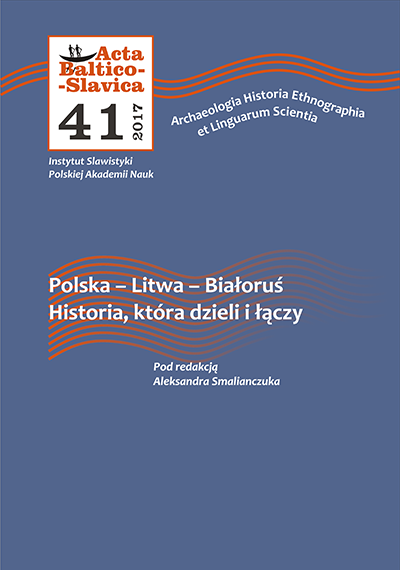
Keywords: Bułak-Bałachowicz; Piłsudski; Sawinkow; Polish-Soviet war; Belarus;
In 1919–1920, Józef Piłsudski, Polish Chief of State, made consistent political attempts at patching up the torn-apart territories of the former Polish-Lithuanian Commonwealth. One significant impact on Piłsudski's plan was the adoption by the Allies, on the 6th of March 1920, of the so-called Millerand's note, which prohibited Poland from carrying out a self-proclamatory referendum in the area of the former Grand Duchy of Lithuania, announced in April 1919 in Vilnius and addressed to residents of the former Grand Duchy of Lithuania. In the spring of 1920, the nationalist side and Piłsudski had “swapped” their demands in regard to the eastern border so far. Piłsudski was believed to expect the return of the border from 1772, in order to retain territory for the establishment of at least both a Belarusian and Ukrainian state, while the National Democrats sought to spare Russia, and obtain areas which would give a chance to absorb ethnically Polish lands into the motherland. Nikolai Tchaikovsky and Boris Savinkov paid a visit to the Belweder Palace already in mid-January 1920. Piłsudski was well aware that the White Russians would want to use the idealist Savinkov to attempt to charge the Polish side with inconsiderable costs (both financial and moral) of the formation of the Russian Army in exile. General Stanisław Bułak-Bałachowicz, revered, fluent in all borderland languages, an excellent soldier, when he was a subordinate of Nikolai Yudenich had tried to rename the unit under his command to the “People's Army”, or in other words, the Territorial or National Army. Stanisław Bułak-Bałachowicz never saw politics as a weapon; he never paid great interest nor had a greater knowledge of it. The autumn of 1919 marks the beginning of the “Belarusian” episode in his life. He never tried to hide his outstanding aversion to the Bolsheviks, who constituted a foreground threat to his country. In the early spring of 1920, Bałachowicz knew the BPR's “potential” from the inside… and thus he chose an ally that seemed a promise of success. The territorial understanding of “Belarusness”, in conjunction with the nearly atavistic anti-bolshevism of Bałachowicz, were a great asset in Józef Piłsudski's new political combination. Piłsudski decided to benefit from Savinkov's idealistic approach for his own purpose. The Russian Political Committee, Bałachowicz's troops and the statements of Vyacheslav Adamovich (father) were to support the establishment of a Belarus for Belarusians. Not under Kaunas and Berlin, nor a Soviet one. A “Third Belarus”. A Belarus friendly towards Poland. Following discussions with Savinkov, the builder of the “Third Russia”, Piłsudski engaged himself after 6th of March 1920 in supporting (inter alia financially) the Russian Political Committee. Based on the agreement of the Polish Supreme Command with B. V. Savinkov, all Russian formations on the Polish territory were politically subordinated to Savinkov, and the amounts paid by the Polish Government since 1st of March 1920 were recognized as Russia's sovereign debt to the Polish Republic. In August 1920, on the orders of the Supreme Command, Bałachowicz entered a secret agreement with Savinkov. They both were also to seek convening the Constituent Assembly, providing land for the people and democracy, and to create a Union of Nations (i.e., a federation). Note 1. The issue of further strategic dependence of General Bałachowicz and other unit in the event of a single command of Russian troops formed on Polish territory and abroad was to be settled only when such a situation would actually arise. Note 2. In the event of Bałachowicz's unit succeeding “deeper into Russian territory”, the local government and the administrative board were to be founded on his authority. This is how Bułak-Bałachowicz was to become the executor of the first phase of Piłsudski's new “concept for Belarus”. On 12th of October 1920 the Warsaw-based “Belarusian Political Committee” (Pavel Aleksiuk, Vyacheslav Adamovich father and others) reached an agreement with General Bałachowicz. The Belarusian Political Committee undertook to carry out the recruitment for the Belarusian army to be formed under Bałachowicz's leadership, while the latter would cede civil authority in the gradually conquered, ethnically Belarusian territories to the Belarusian Political Committee. On 2nd of November 1920, a meeting of Polish and Belarusian politicians took place. The aim of the Slutsk Action was to achieve independence for Belarus. The indivisibility of Belarus was to be achieved by means of a federation with Poland and a closer cooperation with Central Lithuania, which was still going through its first 72 days. The Legislative Sejm of White Ruthenia was to be convened. A legitimate, i.e. not a self-proclaimed government – in a fixed composition of 50% of Belarusians, 40% of Poles and 10% of Jews – was to be appointed by the Supreme Council. In short, this planned statehood in “Piłsudski's plans according to Belarusian sources” was to be undoubtedly “Belarusian”. The conditions for Belarusian success were to be: a lack of internal frictions among the Belarusians, the foundation of authority on local governments and cooperation with Bułak-Bałachowicz. None of these was satisfied by the Belarusians. Not all Poles were aware of what was at stake. Even Polish General Staff officers showed confusion. Lis Błoński clearly writes about “serious misunderstandings” which occurred between him and Bałachowicz in the period preceding the Mozyr declaration (November 1920). Those of Bałachowicz's units that were composed of Belarusians only believed that the area which fell under their control was an integral part of the Republic of Belarus. These units also began to rearrange each possible village and municipality in their own way: the “Russian way”. Meanwhile, on 11th of November 1920, the Belarusian government of Vaclav Lastovski reached an agreement in Kaunas with the Lithuanian authorities reluctant towards Poland on political and economic cooperation. Lastovski, on behalf of the Belarusian People's Republic, withdrew the claims of Belarusians to Vilnius as their capital in favor of the Lithuanians. A joint Lithuanian-Belarusian front against Poland was declared. On the 14th of November 1920, the Belarusian Congress of Sluchchyna adopted an anti-Soviet resolution calling for the creation of a free Belarus within its ethnographic area and, at the same time, showing a cordial welcome to “our sister Poland”. On the 15th personal delegates of Bałachowicz (including his brother) arrived in Slutsk, however, the SRs, oriented towards the BPR in Kaunas, consistently reluctant Poland, had already taken over spiritual leadership. The three pro-Bałachowicz and pro-Polish organizers of this congress (Arseniusz Pawlukiewicz, Anton Baczko and Jan Macelli) were put on the defensive. The Belarusian Supreme Council (Rada), while supported by Piłsudski, refused any talks with Bałachowicz, despite the latter’s efforts. At the same time, delegates in Slutsk were already planning on how to “tear away” the troops forming under Bałachowicz from his influence. On the 16th of November 1920, Stanisław Bułak-Bałachowicz announced in Mozyr the creation of the Belarusian People's Republic (bis) headed by Vyacheslav Adamowicz (father), a participant of the First All-Belarusian Congress, as Prime Minister, while he proclaimed himself Commander-in-Chief of Belarus. The Congress of Sluchchyna responded negatively to this offer by rejecting cooperation with Bałachowicz and declaring their effective subordination to the consistently anti-Polish BPR government in Kaunas. Extremely characteristic of Boris Savinkov was his reaction to the contents of the Mozyr declaration, even though it was consistent with the agreement he had reached with Bałachowicz in August. In Bałachowicz's long, emotional letter to Boris Savinkov, we find that, back on the 16th of November in Mozyr, Savinkov had shouted in his face: “If I had known it was all about White Ruthenia, never in my life would I have gone!” Judging from Bułak-Bałachowicz's emotional letter to Savinkov, the latter had been taken in by Piłsudski, convinced that the sole objective of the Polish Head of State was, as expected by Wrangel, an anti-Bolshevik crusade and preventive establishment of a democratic Russia. It was only in Mozyr that Savinkov realized that he has almost been taken advantage of. Lis-Błoński expressly blamed Savinkov for the failure of the Mozyr effort. Savinkov, of course, never intended to disintegrate the future Third Russia through the establishment of some independent Belarus. However, it was not his fault. Bułak-Bałachowicz's was rejected, despite strong internal opposition, by the Belarusians themselves. Why did it fail? Reasons were manyfold. 1. Bułak-Bałachowicz enjoyed authority among the local crowd of his politically and nationally unstructured countrymen, and not, let us face it, the elite group of professional Belarusian politicians. Those in Kaunas had no knowledge, as they could not have any, of Bułak-Bałachowicz's political statements before Mozyr. While the one from Mozyr constituted a threat to their political and physical existence. 2. The Supreme Council, backed by Piłsudski since the 13th of December 1919, refused to take Bałachowicz's side. 3. The signing of the agreement between the Russian Political Committee and the Belarusian Committee of Vyacheslav A. Adamovich on the 16th of November 1920 in Mozyr was just a symbolic move forced on the Russians by the circumstances. Savinkov, given his own situation on the Belarusian political scene, in 1920 had absolutely no intention of establishing a Belarusian state. Moreover, it was him who, in April 1921, did unleash on international level a campaign of blaming Bałachowicz for all the shameful anti-Jewish pogroms that took place from the Baltic to the Black Sea in that period. 4. As a result of backroom intra-Belarusian intrigues, the executors of Piłsudski's pro-Belarusian policies based around Bałachowicz and signatories of the RussianBelarusian agreement, the pro-Polish activists Vyacheslav Adamovich and Pavel Aleksiuk found themselves on the margin of the Belarusian political scene. The breaking of the illusory agreement between the Russian Evacuation Committee and the Belarusian People's Republic occurred in June 1921 in the course of deliberations of the Representatives of Russian Political Evacuation Committee in Poland and a representative of the Belarusian Military and Political Centre. The Russian side alleviated the effects of this move by elaborating a “Political forecast for Belarus” as an undivisable political entity, drawn up by Savinkov's aide and Cheka agent A.A. Dikgof-Derental who acted on behalf of the Russian Political Evacuation Committee in Poland. One important question is whether Stanisław Bułak-Bałachowicz was actually aware in 1920 of his “position” in Piłsudski's planned new political combination. Could it be that the would-be Commander-in-Chief of the Belarusian Army had repressed the memory of the affront he met with in Mozyr from his countrymen? This hypothesis could be supported by the sudden change in Bałachowicz's orientation who, following his failure in Mozyr, “became” 100% Polish. In the new realities of Warsaw's political spheres and backrooms after the Treaty of Riga, Bałachowicz only as a Pole could guarantee the status and decent supplies for his troops and their families after the war. The end justifies the means. Especially that, in consequence of the sudden reshuffles in the spheres of influence, the status of these soldiers was disadvantageous.
More...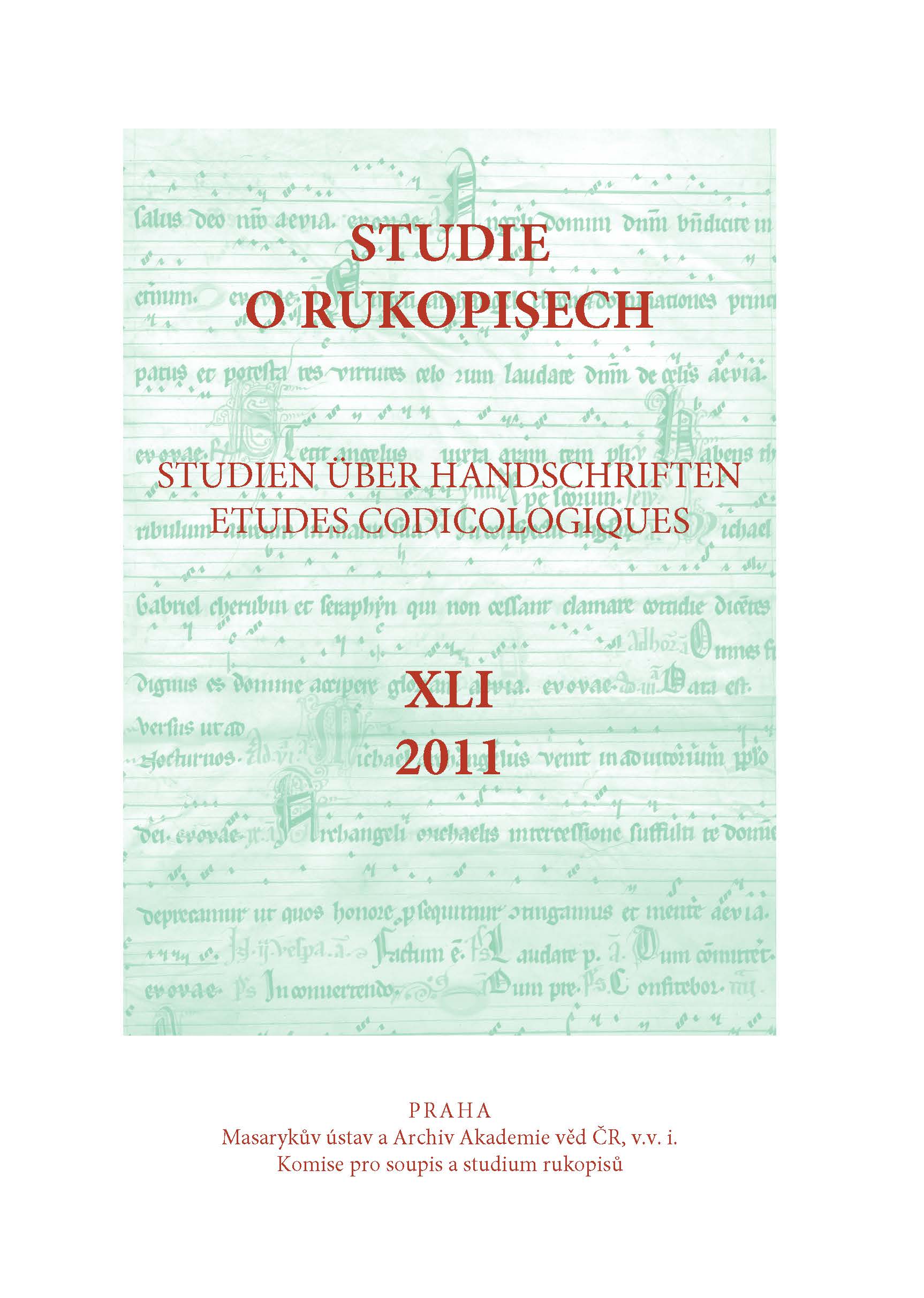
Keywords: Cartusians; library; manuscripts
This article brings a codicological analysis of a manuscript belonging to the Carthusian monastery at Tržek near Litomyšl that was found by researching manuscripts relating to Bohemia and held by the Biblioteca Palatina Vaticana. Moreover, the author deals with other preserved manuscripts coming from this monastery and relating to other monasteries of the same order in Bohemia and Moravia in the Middle Ages. Attention is also paid to the destiny of Albert of Sternberg, the founder of the Carthusia.
More...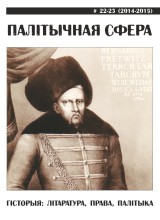
Keywords: Old Russian Literature; History of Literature; Ancient Rus'; Slavic Studies;
The text summarises the author's many years of research of ancient literature of the East Slavs, including primary sources and later interpretations, as well as the development of Slavic Studies as a discipline which has experienced considerable political influence. He analyses the origin of the phenomenon of "Old Russian literature", the development of the body of texts, the problem of influences and borrowings. He pays considerable attention to the institutional aspects of the book culture of Eastern Europe, as well as various assessments and interpretations of the phenomenon of "Old Russian literature" in scientific studies of the 19th and 20th centuries.
More...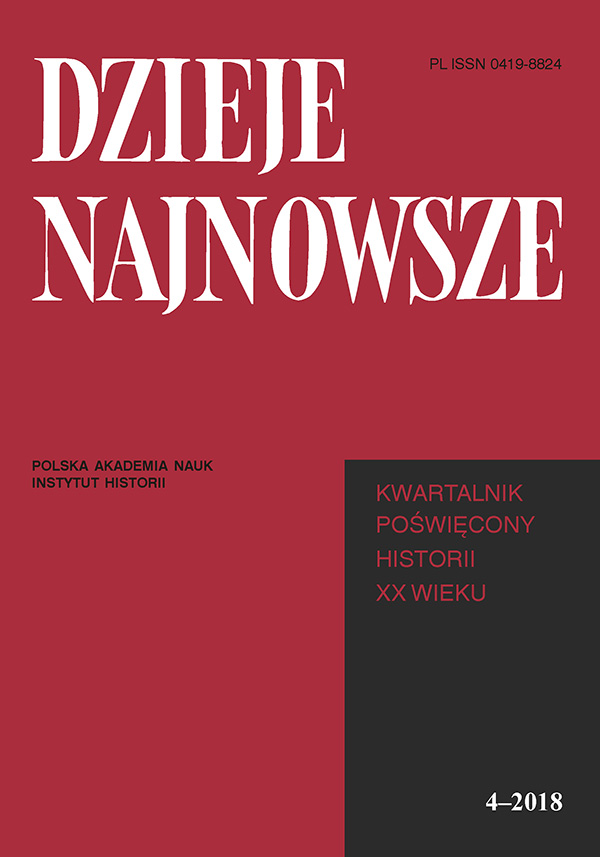
Keywords: Coordinating Committee for Multilateral Export Controls (COCOM); scientific and technological intelligence; technologies; Polish People’s Republic (People’s Poland); USSR; USA; Cold War;1945–1989;
The article systematises the current state of research into the question of strategic embargo imposed by the member states of the Coordinating Committee for Multilateral Export Controls against the communist states during the Cold War. The author characterises the archival material and indicates new research perspectives. On the example of the Polish People’s Republic, he discusses the American policy of granting exceptions for the sale of the so-called “dual-use goods” (strategic goods of military and civil application) to the COMECON states. In addition, documents of Polish intelligence have been used that present discrepancies between the COCOM states on the sale of new technologies to the USSR and other states of the communist bloc.
More...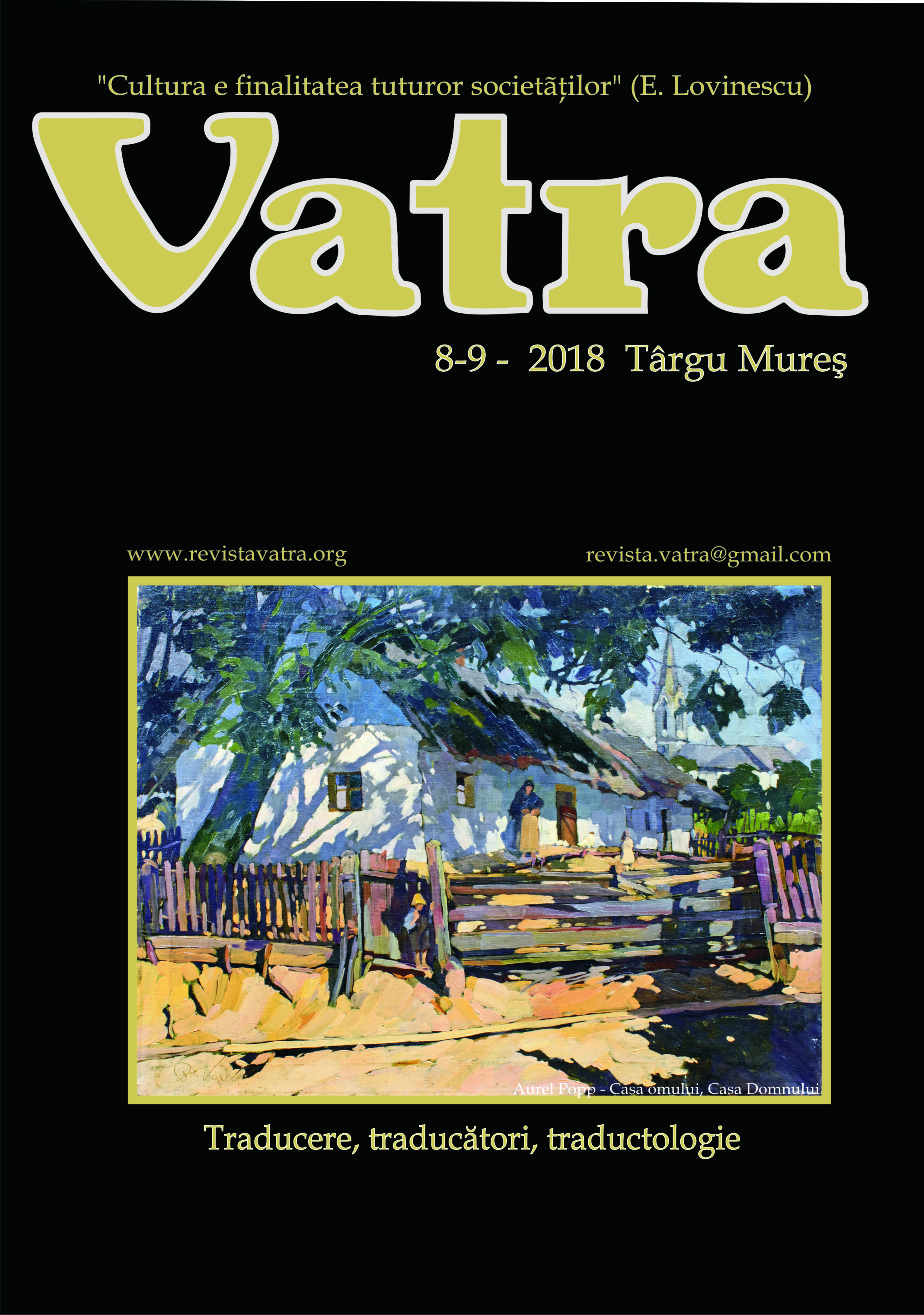
Keywords: translation; Umberto Eco; traductology; Vargas llosa;
This fragment incorporates a series of text about the study and practice of translation in literature.
More...
Keywords: Eugen Bormann; Archival Research; Biography; Bormann papers; correspondence; letters; History of Classics; University of Vienna; University of Prague
Eugen Bormann, Professor of Ancient History and Epigraphy at the University of Vienna from 1885 to 1914,left a great scientific legacy after his demise. Because of the private correspondence of his widow Augustewith her daughter Emma, we know details about the sale of this legacy. The legacy was bought by the textileindustrialist Hugo Ritter Grab von Hermannswörth, who donated it to the German University in Prague. Someof this legacy has not yet been found. But what we have in abundance is Bormann’s correspondence in thearchives of Charles University in Prague. This article will not only trace the story of the sale of the ‘Bormannpapers’, it will also cast light on a few selected bundles, e.g. gifts for Bormanns 70th birthday, school certificates, letters from Otto Benndorf, Alexander Conze, Michael Rostovtzeff, or Marie von Ebner -Eschenbach.This will show what tremendous treasure slumbers for the biographical research on Eugen Bormann in thePrague archive. The author’s goal is to lift this treasure in the next few years.
More...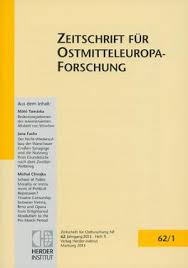
Keywords: Prometheanism; Eastern European Studies; Second Polish Republic;
The acute awareness of the existence of two powerful neighbours is not only of exceptional influence for Polish society, it has significantly influenced modern Polish state formation and has been a decisive factor in Polish foreign policy. An intensive preoccupation with Germany and Russia was an integral part of political and intellectual life in the Second Polish Republic, which also found an expression in the establishment of a vibrant scholarly discussion. Especially in its institutionalised forms, this scholarship showed from the very start its close ties with the state and certain political groups. The Eastern European Studies has focused since the mid-1920s on the one hand on the study of historical Polish eastern territories (Kresy) with a clear view to the Ukraine, on the other hand on the study of the Soviet system and the peoples of the Soviet Union. The Eastern Europe Institute in Warsaw, and the Research Institute for Eastern Europe in Vilnius emerged as centres for this kind of research. In the 1930s, Vilnius became a centre for Sovietology. The political doctrine of Prometheanism proved to be a crucial driving force in interwar East European Studies. This “ideology of salvation” was aimed at supporting national movements and autonomy aspirations among the peoples of the Soviet Union and at winning them as partners in the Polish conflict with its eastern neighbour. There emerged not only a tremendous need for information about events in the east, which for the most part formed the material basis for research, Prometheanism demanded from the research institutes that they provide policy advice and held them to promote practical solutions. Polish East European Studies remained, despite its significant achievements, limited in its international efficacy, but it proved in terms of methodology and results, extraordinarily innovative, shedding light on the role Poland played as a centre of scholarship in the interwar period.
More...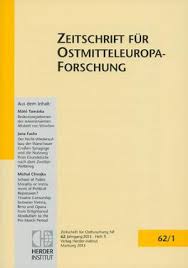
Keywords: Outposts; lost posts; Universities of Straßburg and jur'ev; 1872/1887-1918;
In the Modern Era, European universities rooted in Graeco-Roman culture and Christianity and using Latin as a lingua franca, were transformed into institutions of national states. They played a seminal role in national movements and were even considered bastions or outposts of the national cultures of the respective states. This was particularly true of border regions and recently annexed provinces of uncertain or mixed allegiance. Based on a re-examination of germanization and russification in the late 19,h Century and, in particular, on an exploration of World War I (when the universities of Straßburg and Jur'ev found themselves in the war zone) this article analyzes the closing of these two universities. It discusses the question to what extent this was a consequence of external developments or of the relations between different national groups within these universities and of the traditional tensions between regional and imperial interests. On the one hand, russification and germanization were not enforced as rigorously as the contemporary press and traditional historiography maintained. It is true that most Alsatian and Baltic German teachers were driven out or (by language requirements) forced to resign or retire. At the same time, students of the dominant nationality and from the interior of both empires were specifically recruited for these universities. On the other hand, individual teachers were allowed to use French or German respectively, and concessions were made to locally dominant religious groups (by setting up a Catholic Theological Faculty in Straßburg University and allowing professors of the Lutheran Theological Faculty in Jur'ev to continue teaching in German up to 1916). However, by these very measures and by the different cultures of their students and staff, these universities were internally divided. Apart from formal relations there were hardly any social contacts between the various groups. Their finely graded positions within the university and the discrimination against all Alsatians and Baltic Germans during the war made the self-assertion of these universities ever more complicated in the face of the advancing enemy troops. And whereas there seemed to be no doubt about the preservation of these universities, the question for whom and (in the case of Jur'ev) where they should continue their work was highly disputed. When, at the outbreak of war, loyalties to the respective empires had been put to a test the non-dominant ethnic groups had clearly passed it. The increased discrimination, however, made them hope for the victory of the enemy of their home country (i.e. France and Germany). In the end the invading and occupying power were able to close the former institutions collaborating with local members of the non-dominant groups. The reestablished (or rafher new) German university in Jur'ev (Dorpat), however, was a unique (and stränge) phenomenon in the history of European universities: It was under the Jurisdiction of the German army and was staffed mainly by scholars serving in this army cooperating with some Baltic German members of the formerly Russian university. German regulations limited its autonomy more than the Russian authorities had ever done. But it faded away with German military power. Though German scholars in Straßburg and Russians in Jur'ev stood by their posts to the very end, the collapse of these universities only proved that they had in fact been fighting a lost cause.
More...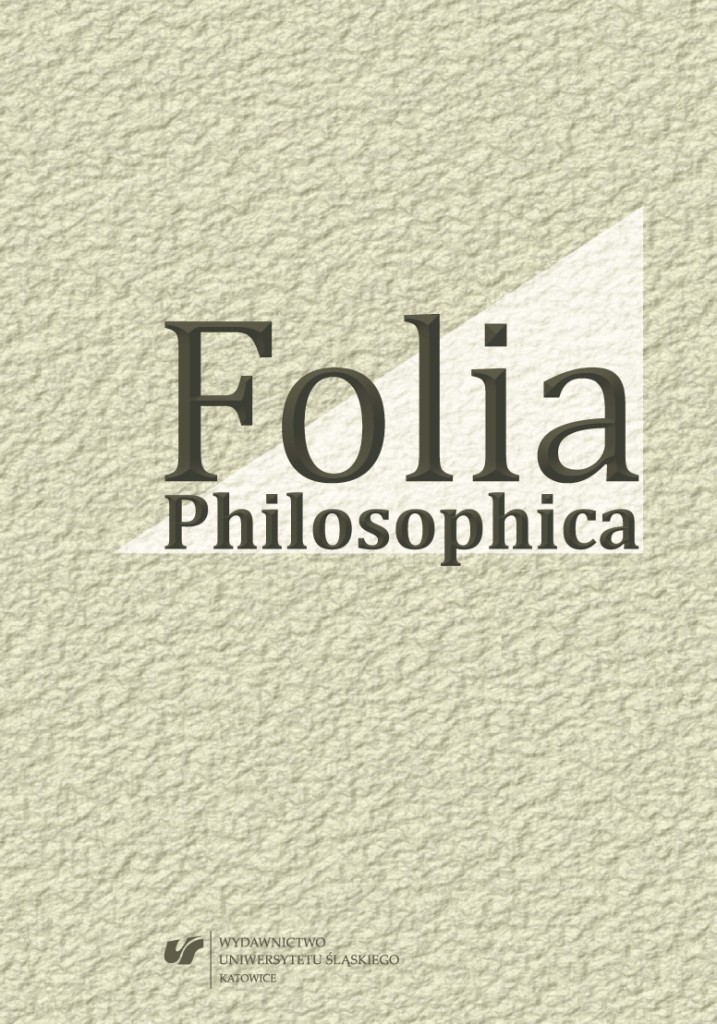
Keywords: Kant; Hegel; Formalism; Freedom; Sittlichkeit;
The relationship between Hegel’s conception of Sittlichkeit and Kant’s moral philosophy is much-discussed, highly controversial and accompanied by many misunderstandings. Relating it to Kant’s philosophy, this article shows that and how Hegel’s elaborations on Sittlichkeit can be understood as an attempt to comprehend the actuality of freedom in the human world. By contrast, the formalism of a Kantian approach of moral philosophy hinders it willy-nilly to comprehend the actuality, hence, the ‘fact’ of freedom properly. Hegel’s Sittlichkeit is a conception of the facticity of freedom. Kant’s conception of Sittlichkeit presupposes such a conception.
More...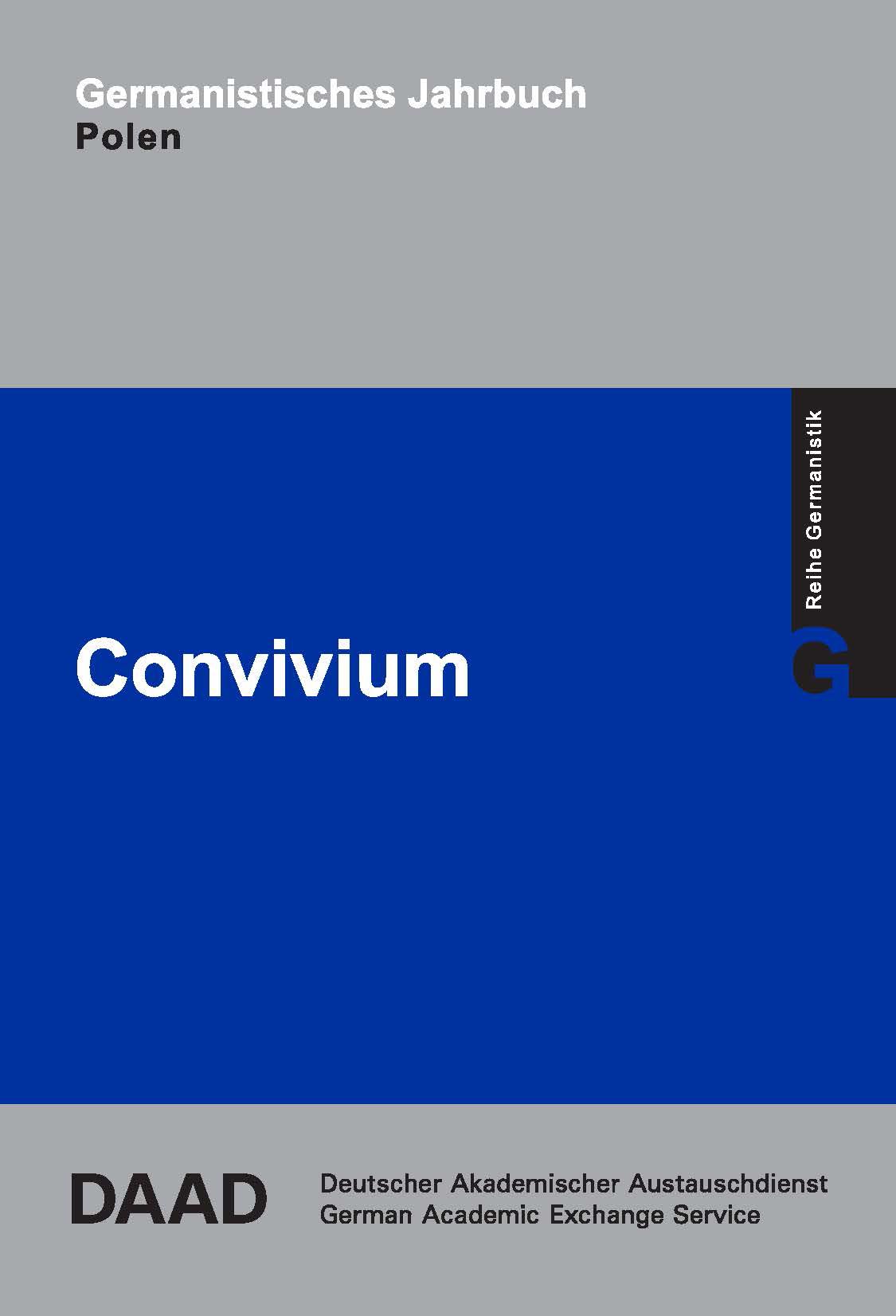
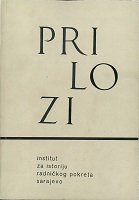
Keywords: reviews; politics; sociology;
Reviews of: Nadežda D. Pavlović, Despot Đurađ Branković, »Minerva«, Beograd – Subotica 1973, (str. 275); Gerhard Botz, »Die Eingliederung Österreichsin das Detsche Reich«, Planung und Verwirklichung der politisch administrativen Anschlusses (1938-1940), Line 1972.; Lukač dr Dušan, Radnički pokret u Jugoslaviji i nacionalno pitanje 1918-1941, izdavač Institut za savremenu istoriju i NIP Export-press-Beograd, Beograd 1972, (str. 421); Dr Zdravko Antonić, Ustanak u istočnoj i centralnoj Bosni 1941, Vojnoistorijski zavod, Beograd 1973, str. 529, F. V. D. Dikin, Bojovna planina, »Nolit«, Beograd 1973, str. 317; Noviji udžbenici o pomoćnim istorijskim naukama, dr Stjepan Antoljak, Pomoćne istorijske nauke, Kraljevo 1971, (str. 394); Bartol Zmajić, Heraldika, sfragistika, genealogija, »Školska knjiga«, Zagreb 1971, (str. 81); J. Stipišić, Pomoćne povijesne znanosti u teoriji i praksi, »Školska knjiga«, Zagreb 1972, (str. 227), Godišnjak Društva istoričara Bosne i Hercegovine XIX, godina 1970-1971, Sarajevo 1973, str. 342; International Review of Social History, Volume XVII – 1972, Parts 1-3, izdavač International Istituut voor Sociale Geschiedenis, Amsterdam.
More...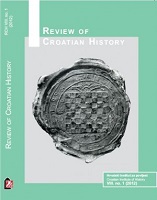
Keywords: Second World War; International Committee of the Red Cross; International Red Cross; Yugoslavia; Yugoslav Committee of the Red Cross; Displaced Persons;
The International Committee of the Red Cross from Geneva and its activities in the circumstances of the Second World War has been exclusively humanitarian, and the ICRC based it on the then applicable provisions and regulations of the International Law of War (the Law of Armed Conflict). In the aftermath of the Second World War, sporadic allegations began to arise on the ICRC’s activities in the war’s circumstances, from 1939 to 1945. These allegations focused in particular on the ICRC’s relations with the Authorities of the German Reich, and on the ICRC’s activities in favor of the Jews during the war. Initially, the ICRC and its leadership has been facing sporadic accusations from various organizations or individuals, as well as accusations from the Union of Soviet Socialist Republics (USSR), that had no official relations with the ICRC, and shown open hostilities towards the ICRC in the aftermath of the Second World War. In mid-1946, the representatives of Yugoslav authorities accused the ICRC of protecting collaborators and war criminals and further aggravated the situation. The reason for the outbreak of the conflict was the issue of displaced persons, among other. The Yugoslav Red Cross started the conflict that continued through the official Yugoslav press, with the support of the Yugoslav authorities. Soon, both the Yugoslav Red Cross and the Yugoslav authorities extended their allegations towards the ICRC to the entire ICRC’s activities carried out during the war. Based on original archival sources, published sources and literature, the author presents the genesis of the conflict.
More...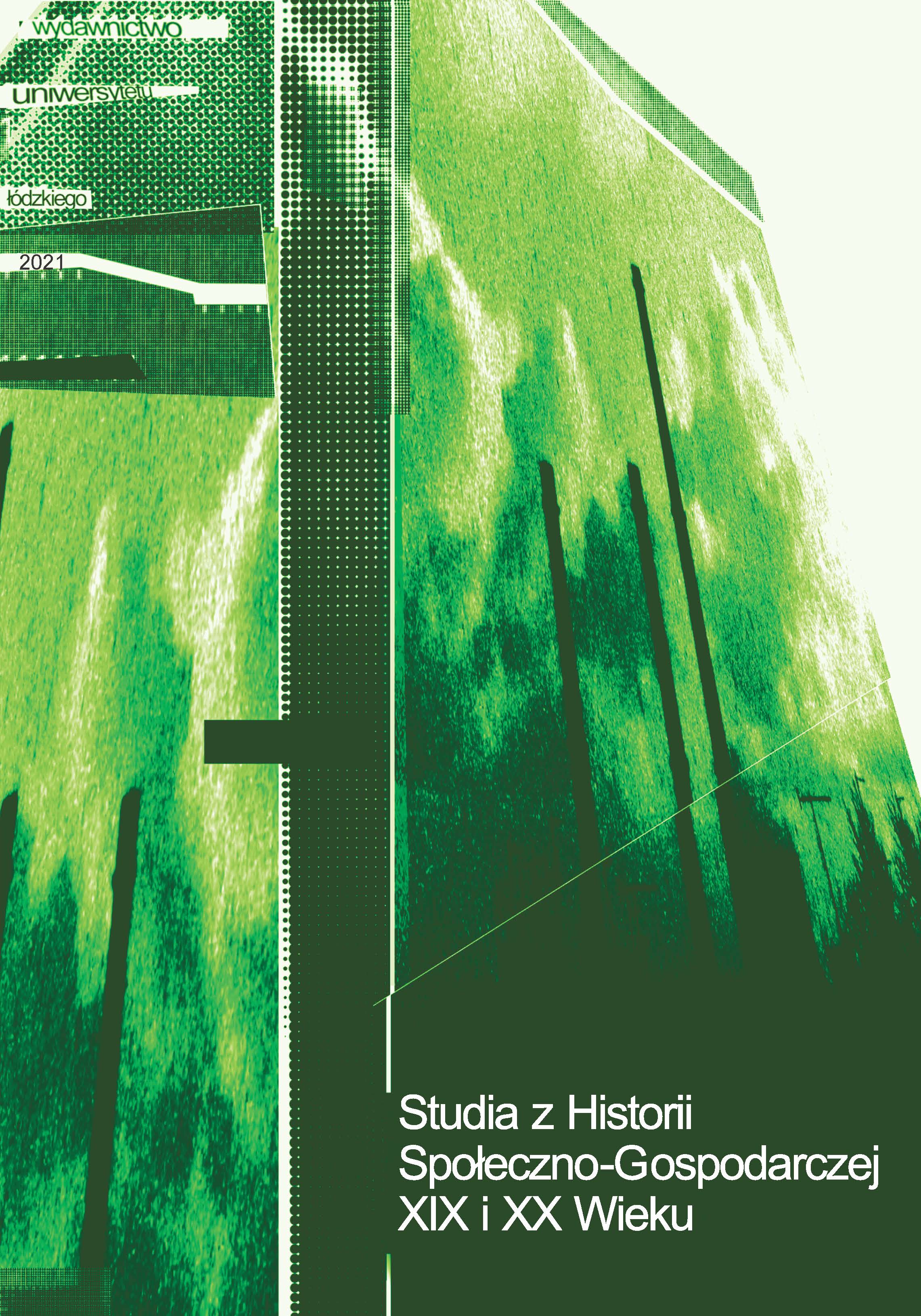
Keywords: Wieluń district; religious; denominations; Judaism; Evangelicals; Orthodox Christians; Greek Catholicism; Bible Students; Mariavitism; Baptists
The agricultural district of Wieluń in the interwar period was an area with less religious diversity than Poland and the Łódź Province. The Roman Catholic denomination definitely dominated – both in terms of the number of believers, the number of clergy, organizational structures and material base. Judaism occupied the second place, with the majority of the faithful concentrated around eight communes. The podium was closed by Augsburg Evangelicals scattered throughout the district with the parish in Wieluń. The remaining denominations were sparse, and among them only the Orthodox had their own parish, which were liquidated.
More...